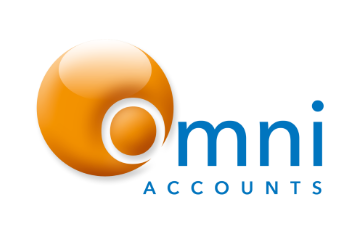Enterprise resource planning (ERP) systems in retail enable the automatic recording of transactions across your business, sending updated information for constant oversight. Using a single system, ERP software allows for inter-departmental communication that optimises your retail functions.
What are the key ERP software features?
The effectiveness of any ERP system depends on the features offered. These need to be aligned with your particular retail requirements. Here’s a look at some of the typical ERP features you can expect to find:
Supply chain management
This ERP system feature will provide end-to-end logistics and data for your retail operation. If you’re a business owner, this effectively means you can predict consumer demand, stock levels and product history. Some of the elements that make up the supply chain/inventory management include:
- Shipping – This covers shipping errors like late or incorrect deliveries.
- Order management – This tracks orders, customises pricing and manages returns. It ensures quick stock replenishment and phasing out of low-selling stock.
Customer relationship management
Focusing on the customer is vital to modern retail, and ERP software enhances this connection by allowing your business to understand how a customer engages with your brand. Customer buying habits and customer profiles empower you by offering a better customer experience.
Financial management
Through profit tracking and risk management, this ERP system allows your business to effectively manage your finances. Depending on your needs, the system is able to project information for accountants, department managers and project managers.
Multichannel or omnichannel
This effectively provides consumers with a seamless retail experience, no matter how they’ve learned of your operation or whatever buying platform they choose to use. Through the omnichannel, retail operators can update inventory levels and shipping information, integrating the various channels so as not to rely on a third-party operator.
Integrated warehouse management
This ERP software will communicate directly with your retail warehouse management system. This means aspects such as changing inventory levels will be clearly reflected across sales channels and financial reports. Alongside inventory management, an integrated ERP system will also support bar code scanning, sales order management, purchase and supplier management, customer service and accounting.
Returns management
A customer’s right to return items is fundamental in modern retail, and the ERP system should be flexible enough to process these returns. Depending on the reason for the return, the software should provide for resale, quarantine for defective objects, as well as refunds for customers.
Integrated point of sale (POS)
In addition to its function as a cash register, the ERP software will enable your POS to store purchase history, customer information, product details, inventory and staff information. This is done by allowing the ERP system to access the back-office system, enhancing day-to-day functionality.
What are the benefits of ERP software for your business?
The above-mentioned features are critical to a usable ERP system, and here’s how these translate into competitive benefits for your retail operations:
- Quick response – Time is money and ERP software will ensure you respond to factors impacting your business operations quickly. You’re also able to attend to customer queries faster, improving the customer experience.
- Resource optimisation – ERP systems mean optimised resource use, thereby reducing costs and boosting profits.
- Overheads – The ERP software reduces overheads, again boosting profits.
- Integration – In retail, ERP systems will integrate all operations for better oversight.
- Scalability – A good ERP system will grow alongside your retail business while maintaining the integration of new systems.
How do you choose the right ERP software supplier?
It’s clear that ERP software is hugely beneficial for your retail business, whether a small operation or large enterprise, but to benefit fully from the features available, it’s important that you partner with the best ERP software supplier for your organisation. Here are a few things to consider when choosing a vendor:
- Compare leading retail ERP software, focusing on features you require and customer feedback.
- Ask about the service offerings as well as the support after purchase.
- Check what sort of ERP training is offered to staff.
- Find an ERP system supplier that specialises in retail.
- Check reviews of the supplier and find out what you can about their business operations.
- Take your time making this decision as it is a big expense and the right supplier can make all the difference.
ERP systems are, undoubtedly, hugely beneficial for all retail operations, but you need to be well-versed on what you want out of the system. Once this has been established, you’ll be able to find a suitable ERP supplier that provides exactly what you need.
Share
